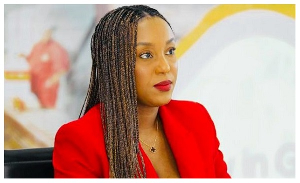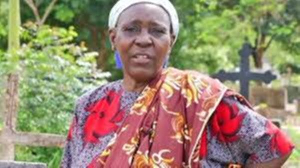A forum to obtain views of Ghanaian Diaspora Returnees and peoples of African descent in fashioning out a Ghanaian diaspora policy and engagement in aid of national development opened in Accra on Thursday.
The event is also to provide stakeholders with information relevant for the enhancement of the capacity of Ghanaians abroad and peoples of African descent for national development.
It is being organised by the Ministry of Foreign Affairs and Regional Integration (MFA&RI) with support from the German International Co-operation (giz).
Mrs. Mercy Debrah Karikari, Director of Administration, MFA&RI, said the Ministry chose to meet Ghanaian returnees and people of African descent living in Ghana first, because they constituted an important group that could offer constructive ideas to shape the policy and practice of diaspora engagement.
She said Ghanaian Foreign Service Officers could also offer constructive views on diaspora engagement on account that they had lived and worked in many parts of the world.
“But the views of Ghanaian returnees and peoples of African descent who have lived and worked in varied circumstances abroad and at home are important. They have also re-integrated in Ghana successfully and have been able to establish viable businesses in the country,” she explained.
Mrs. Karkari said the varied experiences and perspectives of the returnees were critical in evolving and sustaining diaspora engagement.
“Since the struggle for independence, our nation has depended on the resources of the Ghanaian Diaspora and peoples of African descent. However, our early attempts at using the resources of our compatriots abroad were not structured to ensure sustained results.
“In some cases, statements and actions were not coherent, causing considerable frustration, and undermined the very effort of optimizing the benefits to be derived from our nationals abroad,” she said.
Besides, the country has also not developed the needed bilateral legal regimes to enhance the capacity of the compatriots abroad to intervene effectively in national development.
She said, however, efforts have been deployed in recent times to mainstream diasporan issues in national development policies.
She mentioned that Ghana Shared Growth and Development Agenda gave relevance to migration and development and its successor (Development Policy) would highlight diaspora engagement as an important aspect of migration and development.
“In an era of globalization and heightened competitiveness in the pursuit of national interest, no nation can develop effectively without implementing a clear strategy that seeks to harness the potentials of a majority of its human resources, including its diaspora and those who consider that country as a homeland.
“It is our firm conviction that leveraging on the multiple roles of the diaspora as senders of remittances, investors, philanthropists, innovators, exportable labour and first movers in the growth of important sectors such as tourism, health and in the development of human capital, may well contribute to weaning Ghana off its dependency on aid and development financing,” she added.
She noted that it was for that reason that establishing close and productive partnerships with the Ghanaian diaspora, Ghana Returnees and people of African descent with whom “we have common ownership of this country, will no doubt inure to our common good”.
Mrs. Karikari, therefore, expressed the hope that deliberations would lead to conclusions which would inform an effective, structured and sustainable diaspora engagement policy and process.
Mr. David Tette, Advisor on Migration and Diaspora at giz, said some years back, migration had a negative connotation, but “today it has assumed positive connotation not only for individual countries but for the world at large".
He said Ghana has a lot of human resources in the diaspora that can be engaged effectively to enhance the country’s developmental efforts.
He disclosed that, giz was supporting Ghanaians trained in Germany to re-integrate successfully in Ghana to transfer knowledge, skills and technology to their local counterparts.
Mr. Tette stressed the need to motivate Ghanaians abroad to come home during their vacations, undertake projects, share knowledge, skills and technology and go back.
“There is no place like home and it is good that we encourage our brothers to contribute to the developmental efforts of their country.
“No matter how long you stay in another man’s country, you would not be accepted as the nationals of that country,” he added.
The forum would make an assessment of previous efforts diaspora engagement, experiences of Ghanaians abroad, challenges of re-integration, participation of the Ghanaian diaspora in national events, and the way forward, as well as investment and development opportunities for the Ghanaians in the diaspora.
Regional News of Friday, 9 May 2014
Source: GNA
















